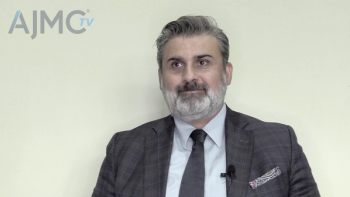
Dr Mark Friedberg Discusses His Findings on Workplace Conditions in FQHCs
A demonstration of federally qualified health centers across the country found a decline in multiple measures of professional satisfaction, workplace environment, and workplace culture, said Dr Mark Friedberg, MD, MPP, Senior Natural Scientist, Director, Boston Office, RAND Corporation
A demonstration of federally qualified health centers across the country found a decline in multiple measures of professional satisfaction, workplace environment, and workplace culture, said Dr Mark Friedberg, MD, MPP, Senior Natural Scientist, Director, Boston Office, RAND Corporation
Transcript (slightly modified)
Can you provide an overview of the recent Health Affairs article you co-authored on workplace conditions in federally qualified health centers and the importance of those findings?
This was part of a contract that ran in hand with CMS to evaluate the federally qualified health center advanced primary care practice demonstration, and that demonstration ran from about 2011-2014. We surveyed as part of that all of the federally qualified health centers that were participants in the demonstration, and we surveyed personnel at various different positions within those centers. So, we had the clinicians, those would be your physicians, your nurse practitioners, your physician assistants; and then the other kinds of staff as well, both clinical and non-clinical twice: near the beginning of the demonstration and closer to the end of the demonstration, about 18 months later.
What we found within the demonstration was a decline in multiple measures of professional satisfaction, workplace environment, and also workplace culture. This was a bit of a surprise to us. We mainly either expected to find no effect over such a short period of time, or we had hoped to see maybe a positive effect over time. Now, we aren’t sure this has anything to do with the demonstration itself, and the reason is we don’t have any practices outside of the demonstration that we also did the survey in, and there’s lots of things going on in healthcare all at the same time. It could easily be the case that the declines we saw on all those measures are due to things other than the demonstration, like changes in technology for example. We know from other studies that adopting and upgrading electronic health records has been stressful for practices. Also, just differences in how practices are paid over time tend to be a source of stress as well. But, it was a little bit alarming to see a decline in all those measures of professional work environment within FQHCs across the country.
Newsletter
Stay ahead of policy, cost, and value—subscribe to AJMC for expert insights at the intersection of clinical care and health economics.














